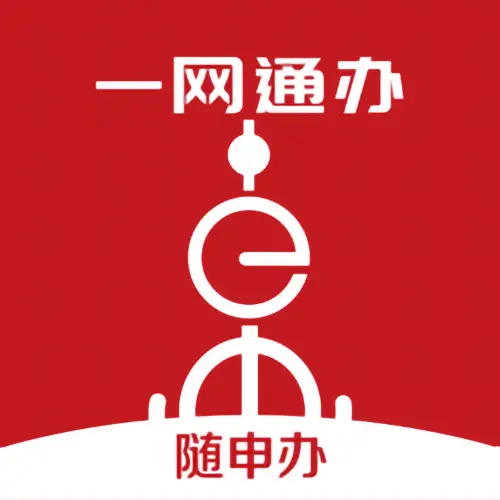1. 著作权包含哪些权利?哪些属于著作人身权?哪些属于著作财产权?
著作权包含发表权、署名权、修改权、保护作品完整权、复制权、发行权、出租权、展览权、表演权、放映权、广播权、信息网络传播权、摄制权、改编权、翻译权、汇编权等应当由著作权人享有的其他权利。其中发表权、署名权、修改权、保护作品完整权属于著作人身权,其他属于著作财产权。
2. 中国著作权法项下作品的分类?展会可能涉及到的作品类型有哪些?
(1)中国著作权法项下作品分类包括:文字作品;口述作品;音乐、戏剧、曲艺、舞蹈、杂技等艺术作品;美术、建筑作品;摄影作品;电影作品和以类似摄制电影的方法创作的作品;工程设计图、产品设计图、地图、示意图等图形作品和模型作品;计算机软件;法律、行政法规规定的其他作品。
(2)展会可能涉及到的作品类型包括:音乐、美术、建筑作品;摄影作品;工程设计图、产品设计图、地图、示意图等图形作品和模型作品;计算机软件等。
3. 著作权登记的作用是什么?
(1)帮助著作权人确定和明确权利归属;
(2)在著作权人被侵权需主张自己的权利时,著作权登记证书可作为拥有权利的初步证明;
(3)保护权利人的相关经济利益,有利于著作权的许可、转让等交易。
(4)可以作为企业申请高新技术企业享受国家所得税优惠政策的文件。
4. 对于外国人在外国出版的作品是否有著作权、著作权权利内容和归属等问题,应依哪国法来确认?
一般依据权利主张地所在国的法律规定确认,比如需要在中国受到保护的,应当依据《中华人民共和国著作权法》来确认。
5. 《保护文学和艺术作品伯尔尼公约》的缔约国有哪些?
截止目前,一共有150个国家:中国、中非共和国、智利、乍得、赞比亚、约旦、英国、印度尼西亚、印度、意大利、以色列、亚美尼亚、牙买加、匈牙利、新西兰、新加坡、希腊、西班牙、乌拉圭、乌克兰、委内瑞拉、危地马拉、土耳其、突尼斯、特立尼达和多巴哥、汤加、坦桑尼亚、泰国、塔吉克斯坦、苏里南、苏丹、斯威士兰、斯洛文尼亚、斯洛伐克、斯里兰卡、圣文森特和格林纳丁斯、圣卢西亚、圣基茨和尼维斯、塞浦路斯、塞内加尔、塞尔维亚和黑山、萨尔瓦多、瑞士、瑞典、日本、前南斯拉夫(马其顿)共和国、葡萄牙、挪威、尼日利亚、尼日尔、尼加拉瓜、南非、纳米比亚、墨西哥、摩纳哥、摩洛哥、摩尔多瓦、秘鲁、孟加拉、蒙古、美国、毛里塔尼亚、毛里求斯、马里、马来西亚、马拉维、马耳他、马达加斯加、罗马尼亚、卢旺达、卢森堡、列支敦士登、利比亚、利比里亚、立陶宛、黎巴嫩、莱索托、拉脱维亚、肯尼亚、克罗地亚、科特迪瓦、卡塔尔、喀麦隆、津巴布韦、捷克、加蓬、加纳、加拿大、几内亚比绍、几内亚、吉尔吉斯斯坦、吉布提、洪都拉斯、荷兰、韩国、海地、哈萨克斯坦、圭亚那、古巴、格鲁吉亚、格林纳达、哥斯达黎加、哥伦比亚、刚果民主共和国、刚果、冈比亚、佛得角、芬兰、斐济、菲律宾、梵蒂冈、法国、厄瓜多尔、俄罗斯、多米尼加联邦、多米尼加共和国、多哥、德国、丹麦、赤道几内亚、朝鲜、布基纳法索、博茨瓦纳、伯利兹、玻利维亚、波斯尼亚和黑塞哥维那、波兰、冰岛、比利时 、贝宁、保加利亚、白俄罗斯、巴西、巴拿马、巴林、巴拉圭、巴基斯坦、巴哈马、巴巴多斯、澳大利亚、奥地利、安提瓜和巴布达、爱沙尼亚、爱尔兰、埃及、阿塞拜疆、阿曼、阿根廷、阿尔及利、阿尔巴尼亚。
6. 对于起源于伯尔尼公约某一缔约国的作品(即作者为该国国民的作品,或首次发表是在该国发生的作品),如何在其他成员国内获得保护?
根据伯尔尼公约的规定,无论是伯尔尼公约下任何一成员国公民或有经常居所的居民所创作的作品,还是非成员国的作者创作的并且首次在某一成员国出版或在某一成员国和非成员国同时出版的(相差不超过30天视为同时出版)作品,都应得到保护。原则上,伯尔尼公约下某一缔约国的作品在其他成员国内可以自动获得保护而不需要经过申请、登记、注册等程序,差别在于公约成员国公民或有经常居所的居民创作的作品无需发表即可获得保护,而公约成员国外作者需在任一公约成员国内首先发表才能获得保护。
本次展会涉及到的作品,只要其作者是伯尔尼公约成员国公民或有经常居所的居民,或者虽不是成员国的公民或居民首次在我国以及其他成员国内发表的,在其他成员国内都能得到著作权保护。
7. 未与我国签订协议或者共同参加国际条约的国家的作者能否在我国主张著作权?
符合以下几种情况的,可以在我国主张著作权保护:
(1)在我国或是伯尔尼公约其他成员国国内有经常居所,依据是伯尔尼公约第3.2条(非本联盟任何一成员国公民但在一成员国国内有经常居所的作者,在适用本公约时,与该国公民作者同等对待)。
(2)作品首先在中国境内出版的,依据是《著作权法》第二条第三款。
(3)作品首次在中国参加的国际条约的成员国出版的,或者在成员国和非成员国同时出版的(30天内),依据是《著作权法》第二条第四款。
8. 参展方购买他人作品进行展览,购买行为是否意味着获得作品的著作权?展览行为是否需要获得作品著作权人的许可?
购买行为并不意味着著作权的转移,《合同法》第137条与《著作权法》第18条都有规定,所有权的转移并不意味着知识产权的转移。如若需要获得作品的著作权,应当根据《著作权法》第三章的规定与权利人签订著作权转让或者许可合同。
根据我国《著作权法》第18条的规定,美术作品的展览权由原件所有人享有,展览美术作品原件的行为不需要获得美术作品著作权人的许可。展览美术作品复制件,需要取得著作权人许可。展览摄影作品的原件或者复制件,都需要取得著作权人许可。展览美术作品、摄影作品之外的其他作品,不需要取得著作权人许可。
9. 侵犯著作权的行为主要有哪些?承担什么法律责任(民事责任、行政责任、刑事责任)
根据我国《著作权法》第47条、48条规定,存在以下不同形式的著作权侵权行为,包括:(1)未经著作权人许可,发表其作品;(2)未经合作作者许可,将与他人合作创作的作品当作自己单独创作的作品发表;(3)没有参加创作,为谋取个人名利,在他人作品上署名;(4)歪曲、篡改他人作品;(5)剽窃他人作品;(6)未经著作权人许可,以展览、摄制电影和以类似摄制电影的方法使用作品,或者以改编、翻译、注释等方式使用作品;(7)使用他人作品,应当支付报酬而未支付;(8)未经电影作品和以类似摄制电影的方法创作的作品、计算机软件、录音录像制品的著作权人或者与著作权有关的权利人许可,出租其作品或者录音录像制品;(9)未经出版者许可,使用其出版的图书、期刊的版式设计;(10)未经表演者许可,从现场直播或者公开传送其现场表演,或者录制其表演;(11)未经著作权人许可,复制、发行、表演、放映、广播、汇编、通过信息网络向公众传播其作品;(12)出版他人享有专有出版权的图书;(13)未经表演者许可,复制、发行录有其表演的录音录像制品,或者通过信息网络向公众传播其表演的,本法另有规定的除外;(14)未经录音录像制作者许可,复制、发行、通过信息网络向公众传播其制作的录音录像制品;(15)未经许可,播放或者复制广播、电视;(16)未经著作权人或者与著作权有关的权利人许可,故意避开或者破坏权利人为其作品、录音录像制品等采取的保护著作权或者与著作权有关的权利的技术措施;(17)未经著作权人或者与著作权有关的权利人许可,故意删除或者改变作品、录音录像制品等的权利管理电子信息;(18)制作、出售假冒他人署名的作品。
侵犯商标权的法律责任分民事责任、行政责任和刑事责任,其中:
l 民事责任包括:
(1)停止侵害;
(2)消除影响;
(3)赔礼道歉;
(4)赔偿损失。侵犯著作权或者与著作权有关的权利的,侵权人应当按照权利人的实际损失给予赔偿;实际损失难以计算的,可以按照侵权人的违法所得给予赔偿。赔偿数额还应当包括权利人为制止侵权行为所支付的合理开支。权利人的实际损失或者侵权人的违法所得不能确定的,由人民法院根据侵权行为的情节,判决给予五十万元以下的赔偿。
l 行政责任,上述(10)到(18)项的侵权行为同时损害公共利益的,除了承担民事责任外,还需要承担行政责任,行政责任包括:
(1)责令停止侵权行为;
(2)没收违法所得;
(3)没收、销毁侵权复制品;
(4)没收主要用于制作侵权复制品的材料、工具、设备等;
(5)罚款。
l 刑事责任包括:
(1)【侵犯著作权罪】以营利为目的,有下列侵犯著作权情形之一,违法所得数额较大或者有其他严重情节的,处三年以下有期徒刑或者拘役,并处或者单处罚金;违法所得数额巨大或者有其他特别严重情节的,处三年以上七年以下有期徒刑,并处罚金:
(一)未经著作权人许可,复制发行其文字作品、音乐、电影、电视、录像作品、计算机软件及其他作品的;
(二)出版他人享有专有出版权的图书的;
(三)未经录音录像制作者许可,复制发行其制作的录音录像的;
(四)制作、出售假冒他人署名的美术作品的。
(2)【销售侵权复制品罪】以营利为目的,销售明知是本法第二百一十七条规定的侵权复制品,违法所得数额巨大的,处三年以下有期徒刑或者拘役,并处或者单处罚金。
本次展会中,参展方应遵守《著作权法》及其他相关法律法规,不从事诸如剽窃、未经许可的复制等直接侵害著作权的行为,也不从事引诱、教唆、帮助等间接侵权行为,否则将会承担相应的民事、行政甚至刑事责任。若展出的产品是通过合法途径得到却侵害了他人著作权,参展方在知晓侵权情况后应当及时停止侵权行为,并向权利人及有关部门反馈产品来源。
1. What rights does copyright include? Which are moral rights? Which areproperty rights?
Copyright includes the rightsof publication, authorship, alteration, integrity,reproduction, distribution, lease, exhibition, performance, show, broadcasting,information network dissemination, production, adaption, translation,compilation and other rights that a copyright holder shall have, among whichthe rights of publication, authorship, alteration and integrity are moral rights, and the rest are property rights.
2. What are the categories of works under the Copyright Law of China? What arethe types of works that may be involved in the exhibition?
(1) Categories of works under the Copyright Law of China: writtenworks; oral works; musical, dramatic, quyi, choreographic, acrobatic and other works;works of fine art and architecture; photographic works; cinematographic works and works createdwith methods similar to those of film shooting; drawings of engineering designsand product designs, maps, sketches and other graphic and model works; computer software; other works as provided for in law andadministrative rules and regulations.
(2) Types of works that may be involved in this exhibition: musical works, and works offine art and architecture; photographic works; drawings of engineering designsand product designs, maps, sketches and other graphic and model works; computersoftware, etc.
3. What does copyright registration do?
(1) The registration helpscopyright holders determine and define the ownership of their rights;
(2) When copyright holdersneed to make claims of their own rights, the copyrightregistration certificate therefor can be used as the preliminary evidencethat they have such rights;
(3) The registration protectsthe relevant economic interests of copyright holders, and is good for thelicensing, transfer and other transactions of copyright; and
(4) The copyright registration certificate can be used by enterprises as a document ofapplication for national income tax advantages for high-tech enterprises.
4. Which country’s law shall issues such as whether works of foreignerspublished in foreign countries enjoy copyright, and the content and ownershipof copyright be confirmed in accordance with?
Generally, the issues shall beconfirmed in accordance with the provisions of law of the country where claimsof rights are made; for example, for works that need to be protected in China,the issues shall be confirmed as per the Copyright Law of the People’s Republicof China.
5. What are the state parties to the Berne Convention for the Protection ofLiterary and Artistic Works?
So far, there are 150 stateparties to the convention, including China, Central African Republic, Chile,Chad, Zambia, Jordan, United Kingdom, Indonesia, India, Italy, Israel, Armenia,Jamaica, Hungary, New Zealand, Singapore, Greece, Spain, Uruguay, Ukraine,Venezuela, Guatemala, Turkey, Tunisia, Trinidad and Tobago, Tonga, Tanzania,Thailand, Tajikistan, Suriname, Sudan, Swaziland, Slovenia, Slovakia, SriLanka, Saint Vincent and the Grenadines, Saint Lucia, Saint Kitts and NeviSpain, Cyprus, Senegal, Serbia and Montenegro, El Salvador, Switzerland,Sweden, Japan, the former Yugoslav Republic (of Macedonia), Portugal, Norway,Nigeria, Niger, Nicaragua, South Africa, Namibia, Mexico, Monaco, Morocco,Moldova, Peru, Bangladesh , Mongolia, United States, Mauritania, Mauritius,Mali, Malaysia, Malawi, Malta, Madagascar, Romania, Rwanda, Luxembourg,Liechtenstein, Libya, Liberia, Lithuania, Lebanon, Lesotho, Latvia, Kenya,Croatia, Côte d’Ivoire, Qatar, Cameroon , Zimbabwe, Czech Republic,Gabon, Ghana, Canada, Guinea-Bissau, Guinea, Kyrgyzstan, Djibouti, Honduras,Netherlands, South Korea, Haiti, Kazakhstan, Guyana, Cuba, Georgia, Grenada,Costa Rica, Colombia, Democratic Republic of Congo, Congo , Gambia, Cape Verde,Finland, Fiji, Philippines, Vatican City, France, Ecuador, Russia, DominicanFederation, Dominican Republic, Togo, Germany, Denmark, Equatorial Guinea,North Korea, Burkina Faso, Botswana, Belize, Bolivia, Bosnia and Herzegovina,Poland, Iceland, Belgium, Benin, Bulgaria, Belarus, Brazil, Panama, Bahrain,Paraguay, Pakistan, Bahamas, Barbados, Australia, Austria, Antigua and Barbuda,Estonia, Ireland, Egypt, Azerbaijan, Oman, Argentina, Algeria and Albania.
6. How can works coming from a state person to the Berne Convention (i.e. works of authors who are nationals of the stateperson, or works first published in the state person) be protected in otherstate parties thereto?
As provided in the BerneConvention, works, either created by the nationals of orresidents with habitual residences in any state person thereto or createdby authors in non-state parties thereto and first published in a state personthereto or simultaneously published in a state person and a non-state personthereto (if the difference between the publication datesof a work in a state person and a non-state person thereto is no more than 30days, the work shall be deemed to be published simultaneously), shall beprotected. In principle, works in a state person to theBerne Convention can be automatically protected in other state partiesthereto without application, registration and other procedures, except thatworks created by the nationals of or residents with habitual residences in astate person to the Berne Convention are not required to be published to beprotected, while works created by authors outside state parties thereto arerequired to be published in any state person thereto to be protected.
Works involved in thisexhibition can be copyrighted in other state parties thereto, provided thattheir authors are the nationals of or residents with habitual residences in astate person to the Berne Convention, or otherwise they are first published inChina and other state parties thereto.
7. Can authors in countries that have signed no agreement or acceded to nointernational treaty with China make claims of copyright in China?
Claims for copyrightprotection for a work can be made in China, if:
(1) The author of the work hasits habitual residence in China or other state parties to the Berne Convention,pursuant to Article 3.2 thereof, which provides that authors who are notnationals of one of the countries of the Union but who have their habitualresidence in one of them shall, for the purposes of this Convention, beassimilated to nationals of that country;
(2) The work is firstpublished in China, pursuant to Article 2.3 of theCopyright Law; or
(3) The work is firstpublished in a state person to an international treaty to which China hasacceded, or is published in a state person and a non-state person theretosimultaneously (or the difference between the publication dates of the work isno more than 30 days), pursuant to Article 2.4 of the Copyright Law.
8. If anexhibitor purchases a work from others for an exhibition, does the purchasemean that the exhibitor has obtained the copyright of the work? is theauthorization of the copyright holder of the work required for the exhibition?
Purchase doesn’t mean thetransfer of copyright, as both Article 137 of the Contract Law and Article 18of the Copyright Law provide that the transfer of ownership doesn’t meant thatof intellectual property. If the copyright of a work is required to beobtained, a copyright transfer or license contract therefor shall be enteredinto with the holder of such copyright as per Chapter 3 of the Copyright Law.
As stated in Article 18 of the Copyright Law ofChina, the right to exhibit the original copy of a work of fine art shall beenjoyed by the owner of such original copy, and the exhibition of the originalcopy of a work of fine art is not required to be authorized by the copyrightholder of the work of fine art. The exhibition of the duplicate copy of a workof fine art is not required to be authorized by the copyright holder thereof.The exhibition of both the original copy or duplicate copy of a photographicwork is required to be authorized by the copyright holder thereof. Theexhibition of works other than works of fine art and photographic works is notrequired to be authorized by the copyright holders thereof.
9. What are themain patent infringement acts? What legal liability (civil, administrative andcriminal liabilities) therefor shall be taken?
As prescribed in Articles 47and 48 of the Copyright Law of China, there are the following differentcopyright infringement acts, including (1) without theauthorization of copyright holders, publishingtheir works; (2) without the authorization of other joint authors,publishing their collective work as a work created solely by oneself; (3)indicating the name of a person who has not participated in the creation of awork of another person on the work to seek personal interests; (4) distortingor tampering with works of others; (5) plagiarizing works of others; (6)without the authorization of copyright holders, using their works by means ofexhibition, film shooting or methods analogous to filmshooting, or in the way of adaption, translation, annotation or otherwise; (7)using works of others without due compensation; (8) without the authorizationof the copyright holders or copyright-related right holders of cinematographicworks, works created with methods analogous to film shooting, computersoftware, and audio or video recordings, leasing their works or audio or videorecordings; (9) without the authorization of publishers, using thetypographical arrangement of books or magazines published by them; (10) withoutthe authorization of performers, broadcasting live, transmitting in public orrecording their performance; (11) without the authorization of copyrightholders, reproducing, distributing, performing, showing, broadcasting,compiling or disseminating to the public through information networks theirworks; (12) publishing books to which the exclusive right of publication shallbe enjoyed by others; (13) without the authorization of performers, reproducingor distributing audio or video recordings of, or disseminating to the publicthrough information networks, their performance, unless otherwise provided by thisLaw; (14) without the authorization of producers, reproducing, distributing ordisseminating to the public through information networks audio or videorecordings produced by them; (15) broadcasting or reproducing radio ortelevision programs without authorization; (16) without the authorization ofcopyright holders or copyright-related right holders, intentionally evading orinfringing the technical measures taken by them for protecting the copyright orcopyright-related rights to their works, audio or video recordings, etc; (17)without the authorization of copyright holders or copyright-related rightholders, intentionally deleting or altering the electric information of therights management of their works, audio or video recordings, etc; and (18) producingor selling works with counterfeit authors’ names.
For copyright infringement,legal liability consists of civil, administrative and criminal liabilities:
l Civil liability includes:
(1)Ceasing infringement;
(2)Eliminating ill effects;
(3) Making an apology; and
(4) Paying damages. If acopyright or copyright-related right is infringed, the infringer shall paydamages based on the actual loss of the right holder; if such actual loss ishard to calculate, damages may be paid based on the illegal gains of theinfringer. The damages shall also include the reasonable expense paid by theright holder for preventing infringement acts. If the actual loss of the rightholder or illegal gains of the infringer can’t be ascertained, the people’scourt shall decide that damages of no more than RMB 500,000 be paid as thecircumstance of infringement act may be.
l Administrative liability.Where the infringement acts under sub-paragraphs (10) to (18) above also harmpublic interest, in addition to civil liability therefor, administrative liabilitytherefor is required to be assumed, including:
(1)Ordering the cessation of infringement acts;
(2) Confiscating illegal gains;
(3) Confiscating anddestroying infringing copies;
(4) Confiscating suchmaterials, tools, equipment and others as mainly used for the production ofinfringing copies; and
(5) Imposing a fine.
l Criminal liability includes:
(1) [crime of copyrightinfringement] Whoever commits any of the following copyrightinfringement acts for profit with a large amount of illegal gains or othercases of gross violation, shall be sentenced to no more than three years inprison or criminal detention, subject to a fine as an additional or exclusive punishment;whoever commits any of the following copyright infringement acts for profitwith an enormous amount of illegal gains or other cases of extremely grossviolation, shall be sentenced to more than three years but no more than sevenyears in prison, subject to a fine:
(a) Without the authorization of copyright holders, reproducing or distributingtheir written, musical, cinematographic, television and video works, computersoftware and others;
(b) Publishing books to which the exclusive right of publication shall beenjoyed by others;
(c) Without the authorization of producers, reproducing or distributingaudio or video recordings produced by them; and
(d) Producing or selling works of fine art with counterfeit authors’names.
(2) [crime of sale ofinfringing copies] Whoever knowingly sells infringing copies under Article 217of this Law with an enormous amount of illegal gains, shall be sentenced to nomore than three years in prison or criminal detention, subject to a fine as anadditional or exclusive punishment.
In this exhibition, exhibitorsshall comply with the Copyright Law and other relevant laws and regulations,and commit neither direct plagiarizing and unauthorized reproduction nor indirect copyrightinfringement acts such as enticement, instigation and assistance, otherwisethey will accept corresponding civil, administrative and even criminalliabilities. Exhibitors, if their exhibits are obtained lawfully but infringeon the copyright of others, shall promptly cease their infringement acts afterknowing such infringement, and give the copyright holders and appropriateauthorities the feedback on the source of their exhibits.



